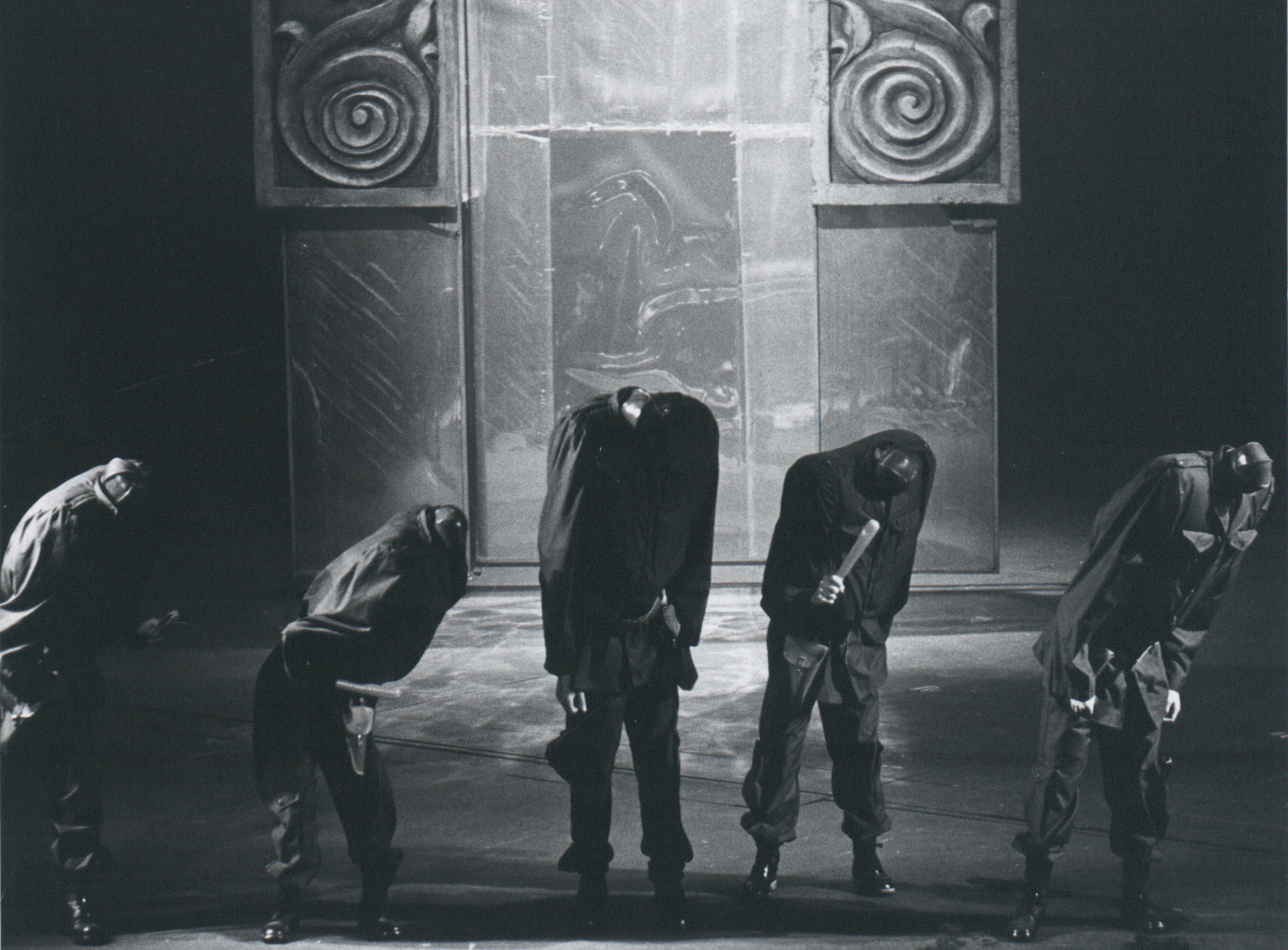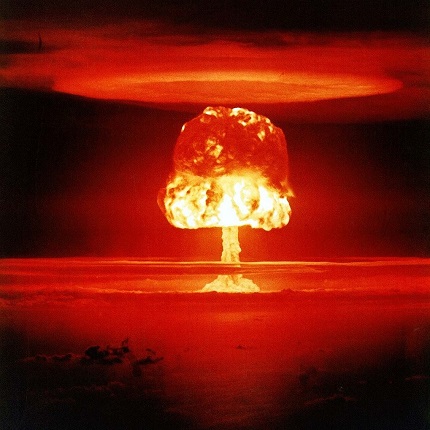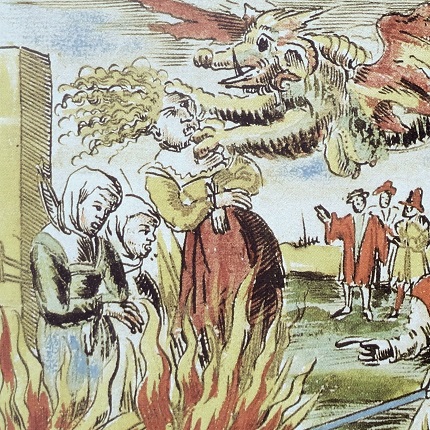The Outside of the Insider
Power and Powerlessness
The Inside of the Outsider
Collective and individual
Title page of Thomas Hobbes’s Leviathan
Copperplate engraving by Abraham Bosse, 1651.
The state as a political body—this is how Thomas Hobbes imagined society and its power hierarchies in the seventeenth century. Friedrich Cerha addressed the structure of the masses and its socio-political implications through composing. His music shines a light onto the (often threatening) collective of society.
Image source: Wikimedia

Stage design of Netzwerk, produced by the Theater an der Wien, 1981
Zugang
My best friend at the time was Italian: Giorgio Castagnetti. The evening of 12 February 1934 is burned into my memory. We played cards by the light of a kerosene lamp […] while the noise of the battle between the Austro-Fascists and Socialists for the Ottakring Workers’ Home could be heard in the distance. My father witnessed the fighting with his own eyes. A few days later, he took me to the most important places and urgently warned me—eight years old at the time—about intolerance and political fanaticism. My experiences during the Nazi era made me remember this often.
Friedrich Cerha
Schriften: ein Netzwerk, Vienna 2001, p. 18 f.
Cerha would certainly object to the label of “political composer” if one ever tried to pin it on him. Yet Cerha’s music also escapes the naivety of the apolitical state of “being political without noticing it”Quoted from Rosa Luxemburg: “To be apolitical is to be political without even realizing it.”. “Democratic” structures can be found in his work, in, for example, the “battle for power” of musical orders. Explicit reminders, however, are nowhere to be found. Cerha’s “mistrust of the unambiguous”Text to the Sechs Postludien für Orgel. See Joachim Diedrichs, Friedrich Cerha. Werkeinführungen, Quellen, Dokumente, Vienna 2018, p. 165 prevents any direct statements, yet continuously encourages the audience to come to their own conclusions.
Written for the radio, the composition Und du… certainly has the most direct political message among his works: It addresses the nuclear threat. Verzeichnis, on the other hand, pursues a horrifyingly sober presentation of systemic murder. The philosophical setting of Hölderlin to music, Jahr lang ins Ungewisse, remains the most abstract. It calculates the margins of social differences against each other.
Werke zum Themenfeld
Von der Zeit des Endes
Und du…, 1963
Verbrannte Menschenwürde
Verzeichnis, 1969
Ein Schicksalslied
Jahrlang ins Ungewisse hinab, 1995/96



